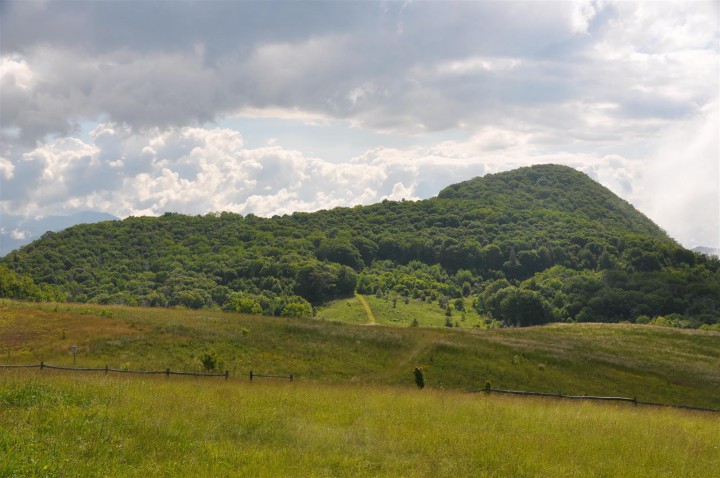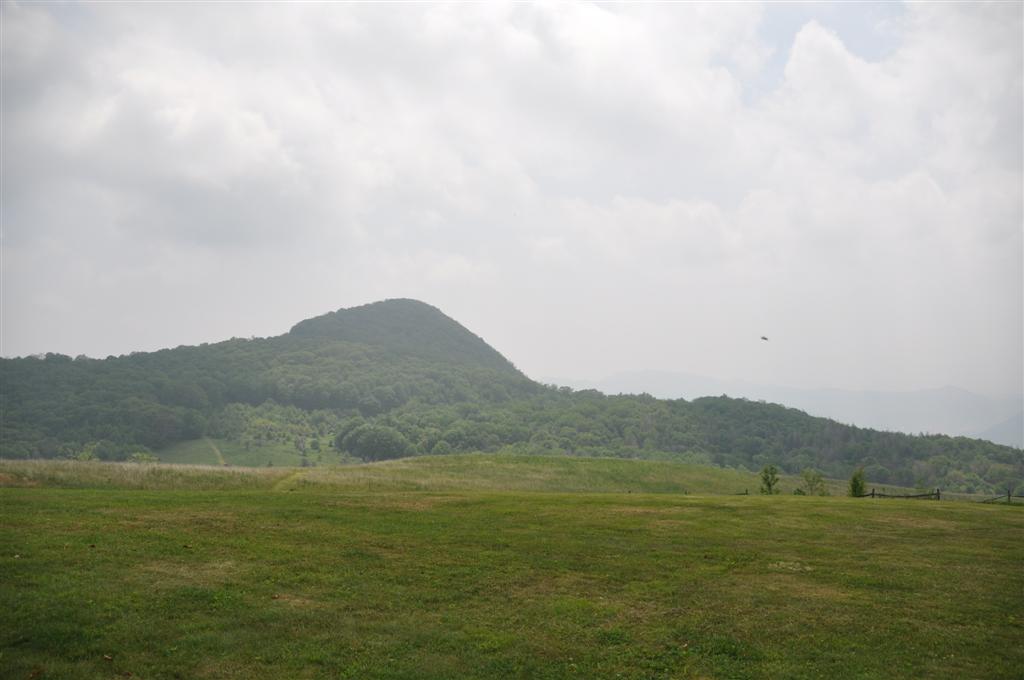As temperatures rise and fair weather inspires hikers, gardeners and sun worshippers to venture outside, there’s one important forecast to keep in mind: air quality. The summer sun warms up existing pollutants — nitrogen oxides, volatile organic compounds and particulates — and in Western North Carolina’s mountainous terrain, there can be significant differences between the air on the ridgetops and in the valleys. Fortunately, in the past decade, there have been no “red,” or high-alert, days due to significant improvements in the region’s air quality, but we still experience “orange” alerts, during which the most sensitive residents should avoid being outside.
Ground-level “ozone is really a summertime pollutant,” says Ashley Featherstone, permitting program manager at the WNC Regional Air Quality Agency. Particle pollution, which is caused by such emissions as wood smoke, is present year-round, she explains. “Ground-level ozone is produced by a chemical reaction in the atmosphere when nitrogen oxide from combustion mixes with volatile organic compounds in the presence of sunlight,” she continues. Ozone is linked to a number of health problems, such as throat irritation, reduced lung function, airway inflammation, asthma attacks and increased susceptibility to respiratory infection, among others, according to the U.S. Environmental Protection Agency.

On April 1, the agency kicked off the annual “ozone season,” which runs through September. During the season, local and state agencies release a daily air-quality index that alerts people to current conditions around North Carolina. On red-alert days, everyone should avoid overexposure. During orange-alert conditions, people with pre-existing conditions such as asthma and lung disease are especially sensitive, but the elderly, very young, and even the very physically active could be affected by high ozone and particulate levels, says Keith Bamberger, information and communication specialist at the Asheville regional office of the N.C. Department of Environment and Natural Resources.
Fortunately, better air quality in the past decade has meant fewer orange-alert days, too, he says. The improvement has come, in part, from stricter regulations, particularly North Carolina’s 2002 Clean Smokestacks Act, which required emission caps for power companies. Around the same time, federal legislation mandated cleaner gasoline and diesel fuel. As new cars with tighter emission standards replace old and power plants produce fewer emissions, we also see an improvement in air quality, Bamberger adds.
While there have been significant improvements, mountain topography and plant life present unique challenges regionally, says Bamberger. Pine trees and, to a lesser extent, oak trees naturally contribute to ozone levels. More significantly, WNC’s terrain can cause mountain-valley air inversions in which air is trapped low to the ground. During the summer, ozone levels peak in the valleys in the late afternoon, but at higher elevations (4,000 feet and above), ozone can become capped and remain at a high level throughout the day — something hikers should keep in mind, says Bamberger.
“If someone goes hiking on an elevated ozone level day, they may get additional exposure. But they may not realize it until the next day,” says Bamberger. He compares the ozone exposure to a sunburn. “Our recommendation is to avoid exposure [on days when ozone is elevated], so you can change [the time] when you jog or run or practice. Or if you’re going hiking, instead of hiking to a mountaintop, maybe it would be better to hike to a waterfall in a valley.”
Featherstone points out that the air-quality standards set by the EPA could change. “The federal agency has “to continue to evaluate the standards and determine whether or not they are protecting the public health well enough with an adequate margin of safety,” she says. “More and more studies seem to suggest that maybe we need the standards lowered or tightened. When we tighten up on these standards, the challenge is for the air quality regulators to improve air quality even further.”
“Individuals are really the cause and the solution to air quality problems,” says Bamberger. “When you’ve got wood burning, if you use a new stove, they’re cleaner [than older models]. If you’re in a car queue line, especially picking up students at the end of the day, if everybody in that line turns off their car when they’re waiting, it improves the air quality for all the students that are there,” he continues. “By using energy-efficient appliances and light bulbs, [we won’t] have to use as much coal in coal-fired power plants. … So all these little efforts that people can make can really let them protect their own air and usually save them money.”



Before you comment
The comments section is here to provide a platform for civil dialogue on the issues we face together as a local community. Xpress is committed to offering this platform for all voices, but when the tone of the discussion gets nasty or strays off topic, we believe many people choose not to participate. Xpress editors are determined to moderate comments to ensure a constructive interchange is maintained. All comments judged not to be in keeping with the spirit of civil discourse will be removed and repeat violators will be banned. See here for our terms of service. Thank you for being part of this effort to promote respectful discussion.